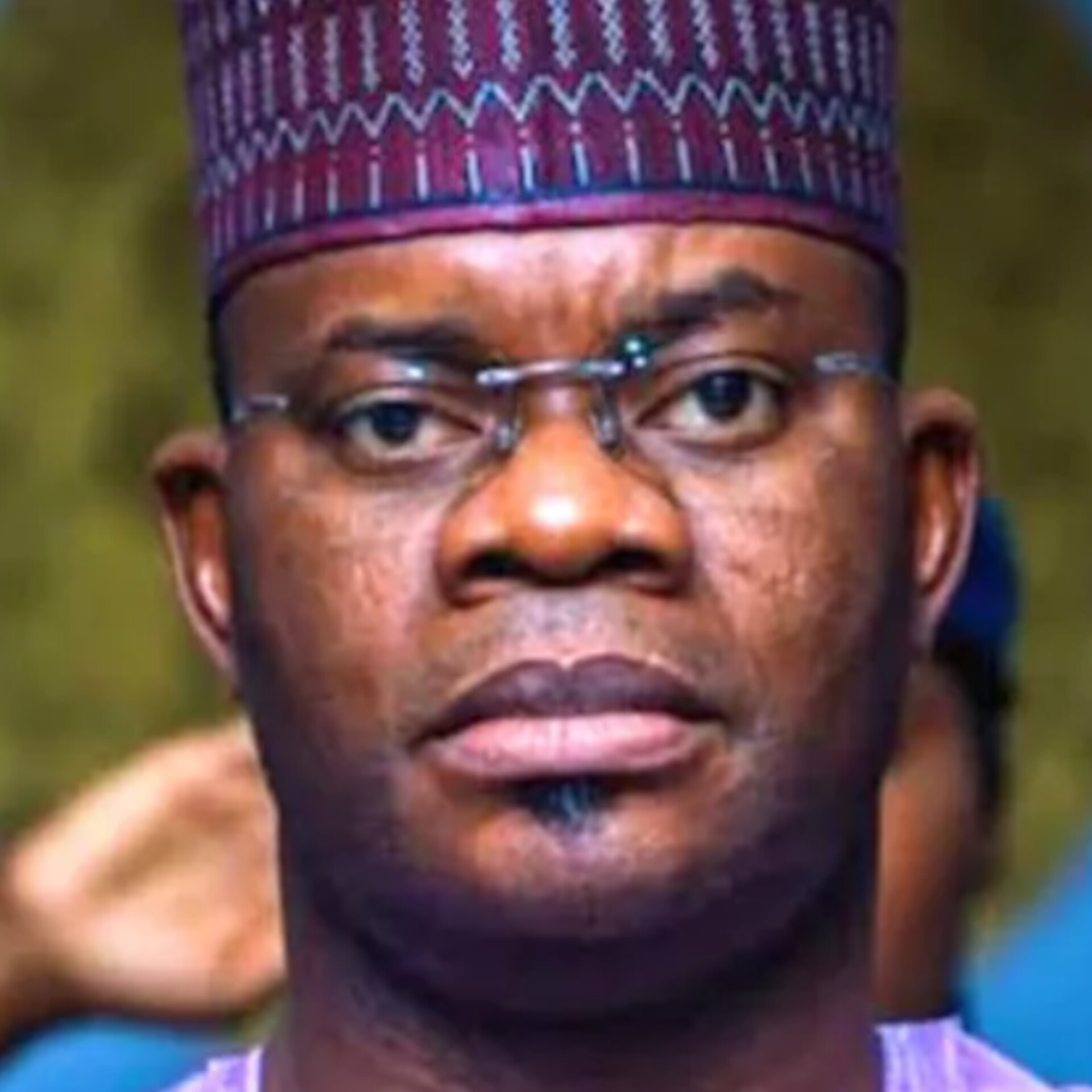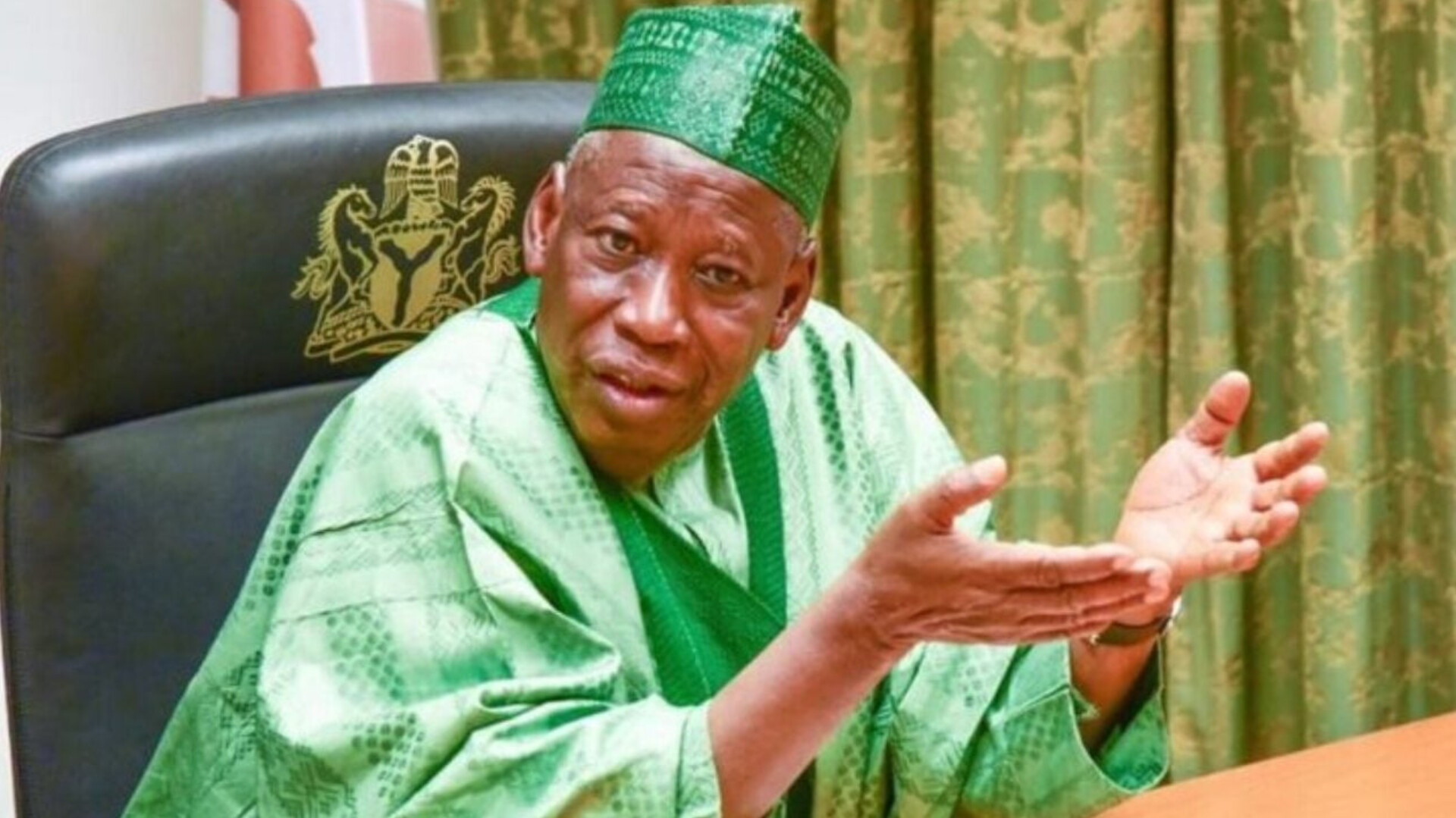Law
PEPC’s judgment was erroneous, Atiku tells Supreme Court

***fails to recognize ‘Doctrine of Legitimate Expectation’
***Says justices exhibited bias through uncomplimentary remarks
The Peoples Democratic Party (PDP), in the last presidential election, Alhaji Atiku Abubakar, is asking the Supreme Court to overturn the judgment of the Presidential Election Petition Court having failed to take into cognisance the “Doctrine of Legitimate Expectation” regarding the failure of INEC to conduct the election in accordance with its own guidelines and the Electoral Act, 2022.
The doctrine of Legitimate Expectation was first developed in English law as a ground of judicial review in administrative law to protect a procedural or substantive interest when a public authority rescinds from a representation made to a person.
In Nigeria, the doctrine of legitimate expectation demands that a public authority shall respect and apply its stated position or sustained practice in exercising its powers on members of the public.
However, Atiku in his Notice of Appeal dated September 18, and filed by his lead counsel, Chief Chris Uche, SAN, submitted that the failure of the tribunal to apply the said doctrine is enough ground for the apex court to set aside the entire decision of the lower court.
Specifically in ground seven of his Notice of Appeal, the former Vice President submitted that, “the lower Court erred in Law when it failed to nullify the presidential election held on February 25, 2023 on the ground of noncompliance with the Electoral Act 2022, when by evidence before the Court, the 1st Respondent (INEC) conducted the election based on very grave and gross misrepresentation contrary to the principles of the Electoral Act 2022, based on the “doctrine of legitimate expectation”.
While pointing out that the Electoral Act 2022, made the use of Bi-modal Verification Accreditation System (BVAS) and INEC’s Results Viewing (IReV) portals mandatory in the conduct of the 2023 general elections, adding that, INEC through its Chairman, Professor Yakubu Mahmood, publicly gave guarantees, undertakings, clear and unambiguous representations to candidates and political parties, that polling units results were mandatorily required to be electronically transmitted or transferred directly by the Presiding Officers, he argued that, “there was no evidence before the lower Court that the 1st Respondent altered its aforesaid Guidelines and Regulations to remove the said requirement of electronic transmission of the results of the election directly from the polling units to the 1st Respondent’s Collation System”.
It is the submission of Atiku that, INEC “conducted the said Presidential Election based on the gross misrepresentation to the Appellants and the general voting public that the Presiding Officers were going to electronically transmit the results of the said election directly from the polling units to the 1st Respondent’s Collation System.
He added that, “Contrary to the above unambiguous representations, undertakings and guarantees, the 1st Respondent neither deployed the electronic transmission of election results nor the electronic collation system in the said election, sabotaging the raison d’etre for the enactment of the new Electoral Act 2022 and the introduction of the technological innovations.
“Rather than hold the 1st Respondent (INEC) as a public institution accountable to the representations that it made pursuant to its statutory and constitutional duties which created legitimate expectation on the part of the Appellant’s, the lower court wrongly exonerated the 1st Respondent of any responsibility by holding that the use of the technological innovations to guarantee transparency was not mandatory”.
It was the appellant’s further position that the February 25 poll was “conducted based on very grave and gross misrepresentation and was therefore oppressive to the Appellants and thus not free and fair, and not in accordance with the principles of the Electoral Act 2022, and not protected by the presumption of regularity, as well as the preamble and the fundamental objectives and directive principles of State Policy of the Constitution of the Federal Republic of Nigeria 1999 (as amended) adopted by the lower court.
“The grave misrepresentation negated the legal presumption of official regularity in favour of the 1st Respondent.
Besides, Atiku told the apex court that INEC as a public institution is not above the law, and not entitled to breach its own regulations with impunity, after clear and unambiguous representations upon which parties have placed reliance and entitled to legitimate expectation.
“The said election ought to have been nullified by reason of the said gross misrepresentation by a public institution based upon the “doctrine of legitimate expectation” as applied by the Supreme Court as a policy Court….”
Accusing the tribunal of bias, the appellants stated in grounds 34 that the “lower Court erred in law in its use of disparaging words against the Appellants in its judgment evincing bias against the Appellants as Petitioners and thereby violating their right to fair hearing and occasioning grave miscarriage of justice.
The justices in their verdicts, while discountenancing the arguments and contentions of the Appellants used expressions such as ‘ludicrous’ (page 721 of the judgment), ‘clever by half’ (page 557 of the judgment), ‘dishonourable practice’ (page
507 of the judgment), ‘smuggle’ (page 557), ‘fallacious’ (page 721
of the judgment); ‘foul play’ (page 560 of the judgment), ‘cross the
line of misconception’ (page 644 of the judgment); ‘collect evidence from the market’ (page 765 of the judgment); ‘those who are not
used to reading preambles’ (page 726 of the judgment); ‘hollowness in the argument of the Petitioners’ (page 727 of the judgment); etc.
It is the position of the appellants that the choice of words and expressions by the lower court shows the
lower Court’s contempt and disdain for the Appellants.
“The lower court failed to use civil, modest, moderate, and temperate language that is befitting of the exalted position of the court in line with the Revised Code for Judicial Officers of the Federal Republic of Nigeria, promulgated by the National Judicial Council.
“The words against the Appellants in the judgment evince a disposition in the mind of the lower court that was far from objective, which approach demonstrated bias and infringement to the Appellants’ right to fair hearing.
“The Appellants were entitled to approach the Court for the
ventilation of their grievances, which court was set up as the
Presidential Election Petition Court, solely to receive petitions arising from the presidential election.
“The right to present an election petition in respect of a presidential election is a right granted by the Constitution of the Federal Republic of Nigeria, 1999 (as amended) and the Electoral Act 2022, which right the Appellants merely exercised.
“The use of the said words and expressions substantially affected the lower court’s consideration of the Appellants’ case, peremptorily
striking out their witness statements on oath, their exhibits, their pleadings, and discountenancing the evidence of their witnesses, and thus occasioned a grave miscarriage of justice”, the appellants submitted.
Recall that the five-member panel of the tribunal had on September 6 upheld the declaration of Tinubu as the winner of the February 25 presidential election.
The panel in a unanimous decision held that Atiku, as well as other petitioners against the February 25 presidential election, were unable to substantiate their allegations against the poll conducted by the Independent National Electoral Commission (INEC).
Specifically, the panel led by Justice Haruna Tsammani in their judgments held that, the documentary and oral evidences presented before them could not prove claims of irregularities, corrupt practices, non-compliance amongst other claims for which Atiku had asked the court to void Tinubu’s election.
Dissatisfied, Atiku claiming that the lower tribunal erred in law in affirming the outcome of the February 25 poll, has amongst others asked the Supreme Court to set aside the entire decision of the tribunal.
Atiku, in addition, prayed the apex court to after voiding Tinubu’s election, declare him as the authentic winner of the poll.
Atiku, who came second in the poll, is claiming that he and not Tinubu actually won the majority of the lawful votes cast at the election, but the electoral umpire, however, manipulated the process in favour of Tinubu.
Law
MAMBILLA: Court halts proceedings, adjurns over EFCC’s invalid prosecution witness against Agunloye

The hearing of the criminal charges against the former Minister of Power and Steel, Dr. Olu Agunloye, which formally began at the FCT Court Thursday, 30 May 2024 before the same Justice Jude Onwuegbuzie was stalled over presentation of invalid prosecution witness by EFCC against Agunloye
EFCC is prosecuting Dr. Agunloye for “awarding in 2003 a $6 billion Build, Operate and Transfer $¾(BOT) contract without cash backing, disobeying oral directives of the President, forging his own letter as a sitting Minister and receiving a retroactive bribe of N3.6 million 16 years after.” To prove its case, EFCC has listed seven witnesses excluding former President Chief Olusegun Obasanjo who had earlier volunteered to testify at the court.
At the court, EFCC presented its first Prosecution Witness (PW1), Mr Adewale as “representative of the Guaranty Trust Bank”. He was brought to discuss the GTBank statement of accounts presented by EFCC. But the moment Mr Adewale disclosed that he was not in the employment of GTBank, the defence lawyers quickly pointed out the aberration to the court which immediately halted the presentation of Mr Adewale. The court promptly stopped the proceedings and adjourned the hearing till Monday, 10 June 2024 to enable the EFCC regularise its Prosecution Witness Number One.
It will be recalled that the former Minister, Dr. Olu. Agunloye, has consistently asserted that he did not commit any crime, and that EFCC is prosecuting him to corroborate FGN’s pleas at the arbitration in France hoping to free FGN from liabilities in the Arbitration even though FGN knows that the issues that led to the international arbitration were caused under Buhari’s APC Government and not by Agunloye. However, Agunloye will have to combat the emergent bias, prejudice, and prejudgment on the part of the trial judge and has to struggle very hard for justice in Nigeria.
Law
EFCC to arraign Bello on Thursday over alleged N80.2b money laundering

The Economic and Financial Crimes Commission, (EFCC) has indicated it will on Thursday, April 18, 2024 arraign a former governor of Kogi State, Yahaya Adoza Bello before a Federal High Court sitting in Abuja.
The antigraft agency said Bello will be arraigned before Justice Emeka Nwite alongside three other suspects, Ali Bello, Dauda Suleiman and Abdulsalam Hudu on 19- count charges bordering on money laundering to the tune of N80, 246,470, 088.88
The arraignment is being perfected following a warrant of arrest and enrolment order granted the EFCC by the court on Wednesday, April 17, 2024.
Count one of the charges reads: That you, Yahaya Adoza Bello, Ali Bello, Dauda Suliman, and Abdulsalam Hudu( Still at large), sometime, in February, 2016, in Abuja within the jurisdiction of this Honourable Court, conspired amongst yourselves to convert the total sum of N80, 246,470, 088.88 which sum you reasonably ought to have known forms part of the proceeds of your unlawful activity to wit, criminal breach of trust and you thereby committed an offence contrary to Section 18(a) and punishable under Section 15(3) of the Money Laundering ( Prohibition) Act, 2011 as amended”.
Count 17 of the charges read: “That you Yahaya Bello between 26th July 2021 to 6th April 2022 in Abuja within the jurisdiction of this Honourable Court aided E-Traders International Limited to conceal the aggregate sum of N3081,804,654.00( Three Billion, Eighty One Million Eight Hundred and Four Thousand Six Hundred and Fifty Four Naira) in account number 1451458080 domiciled in Access BankPlc, which sum you reasonably ought to have known forms part of proceeds of unlawful activity to wit, criminal breach of trust and you thereby committed an offence contrary to Section 18(a), 15(2) (d) of the Money Laundering ( Prohibition) Act, 2011 as amended and punishable under Section 15( 3) of the same Act.
Count 18 of the charges reads: “That you Yahaya Adoza Bello sometime in November 2021 in Abuja within the jurisdiction of this Honourable Court indirectly procured E-Traders international Limited to transfer the aggregate sum of $570,330.00( Five Hundred and Seventy Thousand , Three Hundred and Thirty Dollars) to account number 4266644272 domiciled in TD Bank, United States of America which sum you reasonably ought to have known forms part of proceeds of unlawful activity to wit, criminal breach of trust and you thereby committed an offence contrary to Section 15(2) (d) of the Money Laundering ( Prohibition) Act, 2011 as amended and punishable under Section 15( 3) of the same Act”.
“The Commission’s attempt to execute the Warrant of Arrest lawfully obtained against Bello met stiff resistance on Wednesday, April 17, 2024. The security cordon around the former governor’s residence in Abuja was breached by the current Governor of Kogi State, Usman Ododo who ensured that the suspect was spirited away in his official vehicle.
“As a responsible law enforcement agency, the EFCC exercised restraint in the face of the provocation, waiting for his arraignment on Thursday, April 18, 2024.
“It is needful to state that Bello is not above the law and would be brought to justice as soon as possible.”
Law
Court bars Ganduje from parading himself as member of APC

Yhe Kano State High Court has granted an ex parte order restraining the National Chairman of the All Progressives Congress (APC), Abdullahi Ganduje, from parading himself as a member of the party.
The court ordered that Ganduje must refrain from presiding over all affairs of the National Working Committee of the APC.
The application waa said to have been granted by Justice Usman Na’abba on Tuesday, following an ex parte motion filed by Dr. Ibrahim Sa’ad on behalf of two executive members of Ganduje’s ward, Dawakin-Tofa Local Government Area, the Assistant Secretary, Laminu Sani and Legal Adviser, Haladu Gwanjo (plaintiffs), who were part of the nine ward executives who suspended Ganduje on Monday.
The court directed the four parties (respondents) joined in the matter, including the APC, NWC, APC Kano State Working Committee, and Ganduje, to henceforth, maintain status quo ante belum as of April 15th,2024 pending the hearing and determination of the substantive suit on April 30th 2024
Justice Na’abba, also held as prayed, stopped State Working Committee APC Kano from interfering with the legally and validly considered decision of executives of Ganduje ward, essentially on action endorsed by a two-thirds majority of the executives as provided by the party constitution.
The ex parte order read,, “An order is hereby granted directing all parties in the suit APC (first), APC National Working Committee (second), Kano State Working Committee APC (third), Dr. Abdullah Umar Ganduje (fourth), to maintain status quo ante belum as of April 15, 2024.
“The order thereby restraining the first respondent (APC) from recognising the fourth respondent (Ganduje) as a member of APC and prohibiting the fourth respondent (Ganduje) from presiding over any affairs of the NWC and restraining the state Working Committee from interfering with the legally and validly decision of the ward executives of Ganduje ward.
“That the fourth respondent (Ganduje}is prohibited from parading himself as a . member of APC or doing any act that may _ portray him or seem to be a member of APC pending the hearing and determination of the
substantive suit.”
Nine members of the Ganduje ward proclaimed the suspension of the National Chairman of the APC over the allegation of corruption slammed on him by the Kano State Government.
The nine APC executives said they were prompted to act following a petition written by one Ja’afaru Adamu, a member of the AP from the National chairman’s polling unit.
in the petition, Adamu complained over allegations of corruption charges against the
former governor just as he urged the ward leaders to investigate the matter to redeem the dented image of the party and the implication on President Bola Tinubu’s fight against corruption.
Although the chairman and secretary of the ward failed to act on the petition filed en April 8, 2024, nine members of the executives, led by the legal adviser, acted upon the petition, a decision that led to Ganduje’s suspension.
-

 Crime1 year ago
Crime1 year agoPolice nabs Killer of Varsity Lecturer in Niger
-

 News1 year ago
News1 year agoFCT-IRS tells socialite Aisha Achimugu not to forget to file her annual returns
-

 Appointment2 years ago
Appointment2 years agoTinubu names El-Rufai, Tope Fasua, others in New appointments
-

 News From Kogi1 year ago
News From Kogi1 year agoINEC cancells election in 67 polling units in Ogori-Magongo in Kogi
-

 News From Kogi2 years ago
News From Kogi2 years agoEchocho Challenges Tribunal Judgment ordering rerun in 94 polling units
-

 News2 years ago
News2 years agoIPOB: Simon Ekpa gives reason for seperatists clamour for Biafra
-

 Metro1 year ago
Metro1 year ago‘Listing Simon Ekpa among wanted persons by Nigeria military is rascality, intimidation’
-

 News1 year ago
News1 year agoKingmakers of Igu/ Koton-Karfe dare Bello, urge him to reverse deposition of Ohimege-Igu
